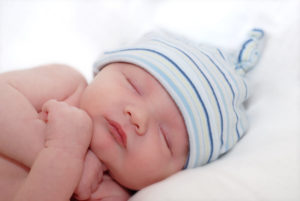
Two months ago, I experienced one of life’s greatest gifts when my first child was born. Throughout my pregnancy, I was mindful of what I was eating and drinking in a way I had never experienced before. Another person was reliant on what I chose to put in my body and I was acutely aware of the need to provide good nutrition to my little one. With this came an overwhelming sense of responsibility that I carried with me throughout.
Almost immediately after he was born, my son needed food. He was naturally driven to nourish himself and I felt so lucky to help him grow and experience this fundamental human need and pleasure…eating. Over the last few months, I have responded to him as he communicates his hunger with cries and other cues. I’ve thought more about how this innate drive becomes so complicated as we grow. What starts as a simple relationship becomes clouded with other factors outside of our bodies.
As life goes on, it is often not just hunger that drives us to eat. Social, emotional, and environmental factors work their way into our relationship with food. And unfortunately, so do guilt, judgment, and labels like “good” and “bad.” I think that maintaining an intuitive and forgiving relationship with food is a challenge for most, whether the relationship is officially “disordered” or not. Movements such as health at every size (HAES) and intuitive eating encourage people to begin to move closer to the simpler relationship with food that I’ve observed in my son.
In the case of eating disorders, the process of feeding one’s self moves beyond the complexity of what most of us experience in our daily relationship with food. With a myriad of potential causes and triggers, the eating disorder highjacks the brain and body in more ways than one. Thoughts and perceptions become distorted, hunger cues become erratic or in some cases nonexistent, and levels of key neurotransmitters and hormones are affected. Depression and anxiety commonly run alongside the eating disorder. The result is a serious, sometimes life-threatening illness that couldn’t be further removed from the pure relationship with food we are all born with.
Carrying and feeding my son, and watching him nourish himself so instinctually have been a reminder for me personally to continue to work toward eating intuitively. I am also reminded of how difficult this can be for those of us who are no longer newborns!
It is tragic the way eating disorders attack the fundamental act of nourishing oneself in a healthful, intuitive way, which is why it is so important to continue to fight eating disorders with early identification and treatment. It’s a fight I am privileged to be a part of.